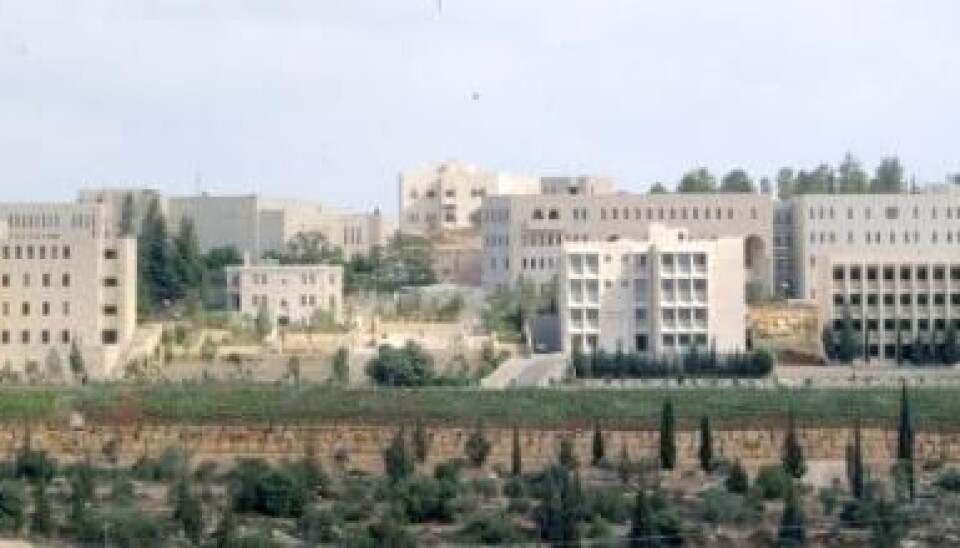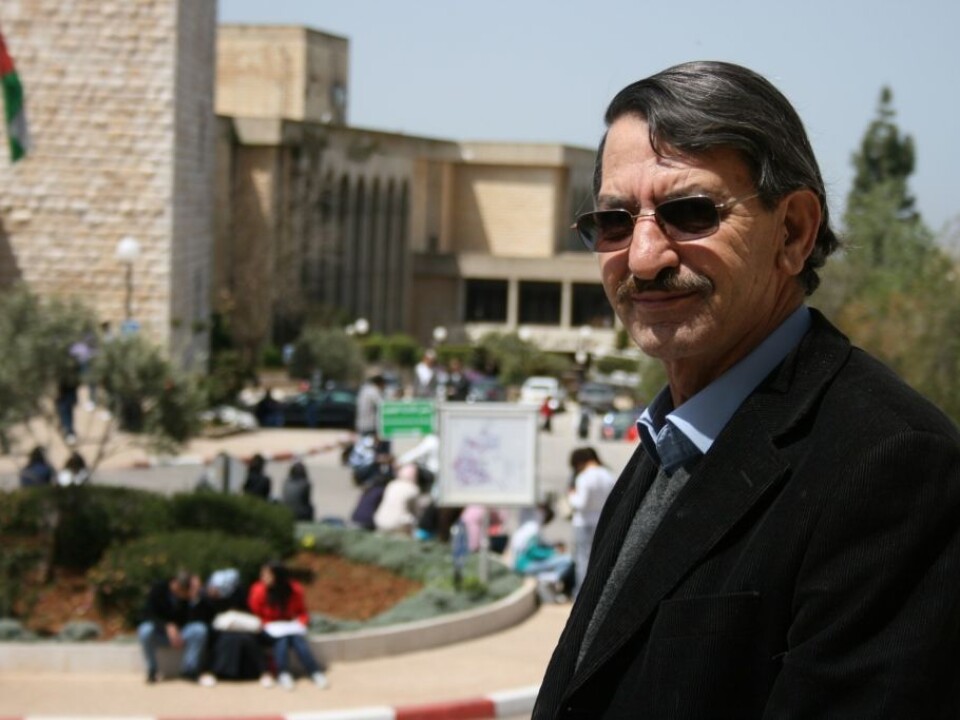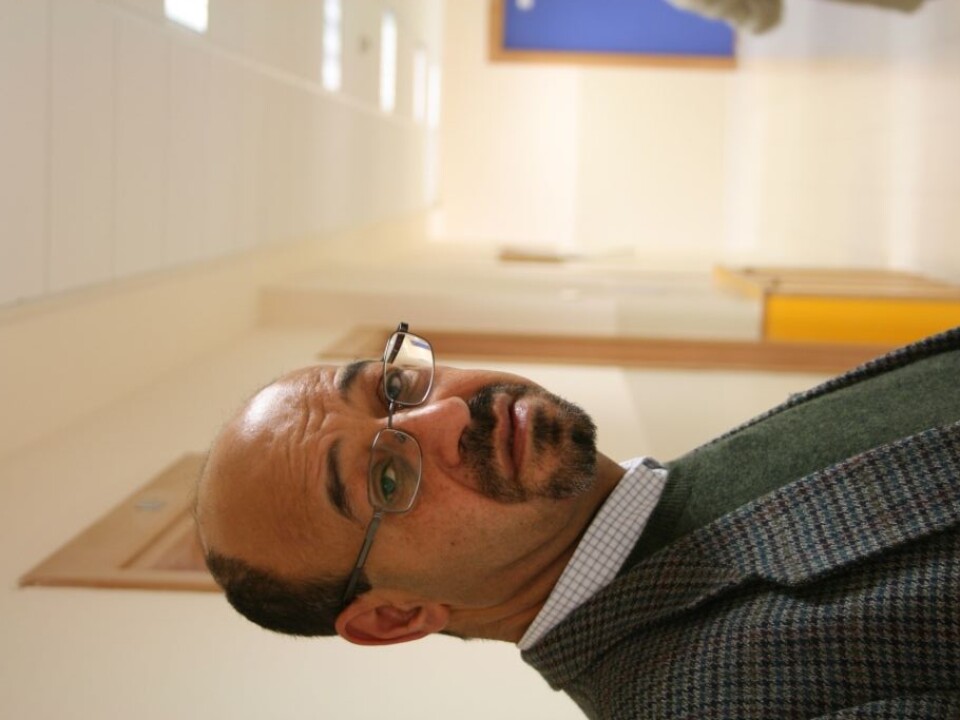This article was produced and financed by Diku - The Norwegian Agency for International Cooperation and Quality Enhancement in Higher Education

Postponing the total collapse
Domestic violence and divorce are increasing in Palestine, as are the level of crime and child abuse. A new Master’s programme in psychology will address the problems.
Denne artikkelen er over ti år gammel og kan inneholde utdatert informasjon.
There was never any doubt that setting up a Master’s programme in psychology at Birzeit University in Palestine would have to mean community psychology. Still, this is in fact the very first MA in community psychology in the entire Arab world.
“We opted for community psychology due to the structure of Palestinian society. Here the individual is inseparably tied to society. This Master’s programme is entirely built around local needs,” says Professor Moslih Kanaaneh.
Kanaaneh was the driving force behind the programme, which was developed in cooperation with the Norwegian University of Science and Technology (NTNU) and Lillehammer University College and funded by Norad’s Programme for Master Studies (NOMA).
Total Collapse

Sociocide. That is Kanaaneh’s concept to describe the current reality in Palestine. Society is eating itself from within. In his view the Israeli occupation is leading to an intentional and systematic sociocide.
The economic hardship. The roadblocks and the separating wall cutting the country into little pieces, often separating families. The mental stress. All these factors are creating chains of effects that in the end will lead to the destruction of Palestinian society, Kanaaneh fears.
Drugs have arrived in Ramallah. Kanaaneh and other Palestinians claim that Israelis play an active role.
“Today we are fighting Israeli occupation, and at the same time we are fighting to postpone the total collapse of Palestinian society," says Kanaaneh, who studied in Norway for several years and earned his PhD in social anthropology from the University of Bergen.

"I have conducted studies on domestic violence based on statistics from the police. All the 24 students in our two first cohorts have written heartbreaking papers dealing with different unhealthy developments in Palestinian society. We have produced the facts. But in general these are very unpopular subjects that nobody wants to talk about.”
During the first intifada (1987–1993) it was the Palestinians against occupation, plain and simple, according to Kanaaneh. Things are not that simple anymore.
“Now there are several aspects effecting children’s mental health, including a series of domestic problems: corruption, crime, deterioration of the value system, not to mention the coexistence of a double personality.”
Double personality
According to Kanaaneh, a new Palestinian generation is growing up having to adapt to two contradictory value systems: the most liberal and democratic and the most extremist Islamic, sometimes existing inside one and the same person.
“If you talk with one of these young women wearing veils, it could turn out she is very liberal, perhaps having sex before marriage. Nobody seems to regard this as a problem."
The researcher stresses the need to sensitise the students to these particularities and problems.
“Considering how complex a person can be, does this double value system really have to be a problem?" he asks.
“If you think that all facts are given by God, and you study at Birzeit where everything has to be empirical and you have to go out and record facts, then there is a contradiction.”
It is no big secret that some teachers are facing problems for being to blunt on controversial issues. Kanaaneh often has a hard time teaching evolution, for example, as it contradicts with the doctrine of creation in Islam.
“I have to be very sensitive. People could easily start talking, saying that I am corrupting the students. But think about it: if you start your research paper with “In the name of Allah,” how can you conduct genuine research? What kinds of new facts will you find when everything is already given by God? These are the kinds of contradictions that exist here and that we have to deal with.”
Some of Kanaaneh’s students are studying divorce, which is on the increase. Others are looking more closely into homosexuality in Palestinian society, something previously considered as non-existing.
“If you start with Islam and thus have the facts already given, leaving you satisfied with simply judging these phenomena as “abnormal” or “forbidden”, then what exactly is it you're going to study? I am not against religion, but I have to try to convince my students not to abuse religion in that way. Study it first and judge it afterwards. I try to make them see the contradictions in their own way of thinking.”
Asked whether his position as a university teacher in Palestine makes him feel that he plays a political role, he says:
“My vision is to see balanced human beings using their minds to get things the way they want them instead of being brainwashed and living lives they did not choose themselves.”
Happy in society
Happiness, sadness and anger are topics of focal interest to Kanaaneh. The Palestine and the European conceptions of happiness are completely different. To understand Palestinian happiness, you have to understand the cultural characteristics, he stresses.
Al-karama, dignity, is the most central value. It takes its content from society. The more successful you are in creating your profile in society, the happier you feel.
In Europe, on the other hand, happiness is about getting in touch with you inner feelings, being honest to yourself and feeling content with your own projects in life. Here it is about getting in touch with your social integrity and understanding what society wants from you.
This difference explains why it is so hard for Westerners to understand suicide actions, he says.
“All the talk about martyrdom is just after-justification, Islamising everything. When you reach a dead end, when your integrity has been destroyed by humiliation, harassment and occupation, you could feel that the only way of regaining your integrity is by sacrificing yourself.”
Shame on you
In psychological terms there is a difference between the external and the internal locus of control.
He explains that in Norway, no matter how much you satisfy society, in the end it is the internal locus of control that judges everything.
"Here in Palestine, it remains in society. This is also why our society is rightly labelled a shame society.”
The main thing, he explains, is not guilt, which is connected to an inner value set, but shame, which is connected to society.
"If no-one sees you, you can do anything. And the other way around: being seen by people prevents you from doing many things.”
The researcher doesn't believe it makes sense to ask whether being a shame society is a good thing or a bad thing.
“In terms of cultural differences there is no good or bad, right or wrong," he says.
"In essence this is about functionality within a cultural context. In our society, this is what functions. And because it functions, you cannot treat a child without taking it into consideration. The psyche that you are working with is different. Children in our society get extremely traumatised by seeing their father being humiliated by an Israeli soldier precisely because shame and integrity are the main issues here.”
Changes needed
The NORAD funding lasted for three years and included scholarships for three intakes of students, each cohort counting 12 students, most of them female.
“The ambition is to continue the programme without external funding, then introduce regular tuition fees,” says Professor Ibrahim Makkawi, the director of the Master’s programme in community psychology.
“Over these three years we have managed to establish a curriculum, teaching materials, a research tradition and resources that will surely make this an attractive programme with high demand in the future. We have made sure that students get a lot of practicum. We bring theory and practice together,” says Makkawi.






























